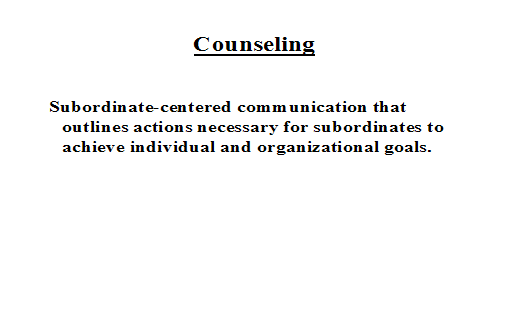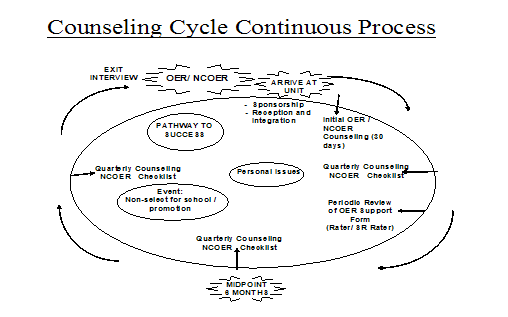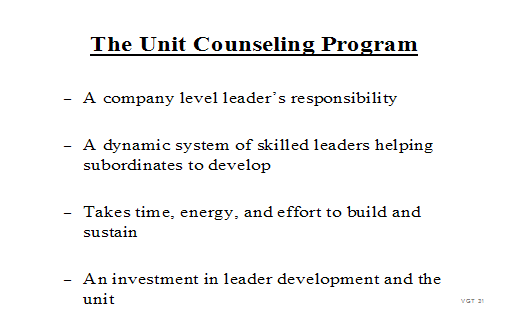Counseling Class for new NCOs
Click here to download the presentation.



Counseling
Subordinate-centered communication that outlines actions necessary for subordinates to achieve individual and organizational goals.
The Unit Counseling Program
A company level leader’s responsibility
A dynamic system of skilled leaders helping subordinates to develop
Takes time, energy, and effort to build and sustain
An investment in leader development and the unit
A Unit Counseling Program Should:
Strengthen the Chain of Command
Clarify policies and procedures
Reinforce standards
Prevent rumors
Praise success
Avoid surprises
Develop responsible subordinates
Subordinate-Centered (Two-Way) Communication
Subordinates assume an active role in the counseling sessions and maintain responsibility for their actions. The following skills assist leaders in subordinate-centered counseling:
Active listening
Responding
Questioning
The Leader as a Counselor
Leaders have a responsibility to develop their subordinates.
During counseling, the leader acts primarily as a helper, not a judge.
The Leader as a Counselor (con’t)
The following qualities help the leader to assume an effective role during a counseling session:
Respect for subordinates
Self and cultural awareness
Credibility
Empathy
The Reason for Counseling
To help subordinates develop in order to achieve organizational goals and objectives.
This overriding theme of “subordinate development” includes helping subordinates to improve (or maintain) performance, solve problems, or attain goals.
Counseling requirements are also integrated into the evaluation system.
Event-Oriented Counseling
Counseling centers around a specific event or situation and is personal in nature
Performance Counseling